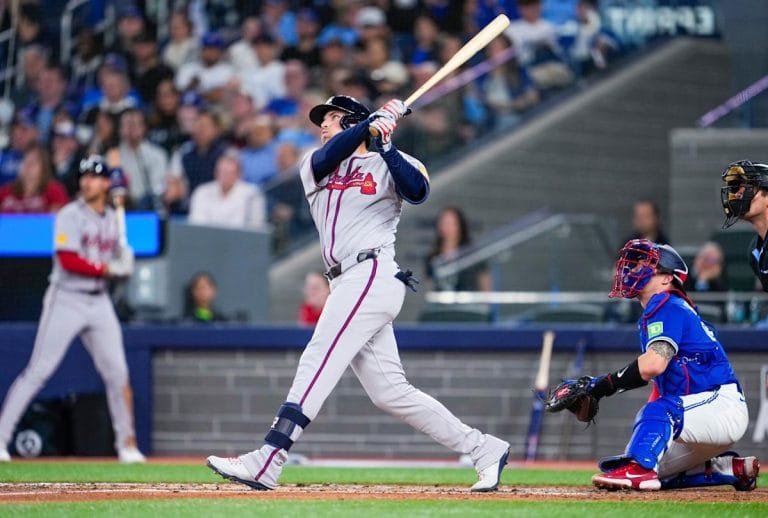🎧 Listen to This Article
A storm is brewing in Atlanta, and it has little to do with baseball. Atlanta Braves Holdings Inc., the only publicly traded Major League Baseball team in the U.S., is facing a $19.1 million tax increase in 2027 — not because of bad business, but due to a little-known provision in U.S. tax law that redefines how corporations can deduct employee compensation.
At first glance, this might seem like just another footnote in the tax code. But dig deeper, and it becomes clear: this is a ticking time bomb for public companies, especially those with marquee talent — and it exposes a structural bias favoring privately held firms in the competitive world of sports and beyond.
Where Sports and the Tax Code Collide
Under longstanding U.S. tax policy, corporations could fully deduct compensation paid to employees as a business expense. But this model has evolved — first under the Clinton administration, which targeted excessive executive pay, and later under the Biden-era American Rescue Plan, which expanded those limits to include a company’s five most highly paid employees, with a $1 million deduction cap per individual.
That rule takes effect in 2027. And for the Braves, whose top five players will earn a combined $96 million, only $5 million of that total will be deductible. The rest becomes non-deductible — and fully taxable — creating a $19 million hit at the current corporate tax rate of 21%.
Why This Rule Disproportionately Hurts the Braves
Here’s the catch: this rule only applies to public companies. That means privately owned teams — like Steve Cohen’s Mets or John Middleton’s Phillies — can still deduct 100% of those same player salaries.
Tax Inequity in Action:
Cohen can fully deduct Juan Soto’s record $765 million contract. The Braves, paying market rates for their stars, get penalized for being public.
Competitive Disadvantage:
The Braves must now factor in a massive hidden cost when competing for free agents — potentially tens of millions more to match net value for players after tax.
This creates a distorted playing field, not just in baseball, but in any sector where public companies compete against private capital with deeper tax shields.
Larger Implications: The Two-Tier Corporate Tax Reality
This isn’t just a baseball issue. It’s a microcosm of a bigger trend: the growing disparity in tax treatment between public and private corporations.
Public companies, subject to transparency and shareholder scrutiny, now face a heavier tax burden for compensating top talent. Meanwhile, private equity-backed firms can operate with greater flexibility, fewer public disclosures, and now — thanks to this rule — preferential tax outcomes.
For Investors:
This challenges the traditional belief that going public is the pinnacle of corporate legitimacy. Why embrace public markets if it invites higher tax and regulatory burdens?
For Policymakers:
There’s a philosophical tension here. The rule aims to curb excessive pay and raise revenue. But is it unintentionally punishing transparency and compliance?
For Sports and Entertainment:
Where top talent costs tens or hundreds of millions, public ownership becomes an expensive liability, not a strategic advantage.
What Are the Braves’ Options?
1. Go Private
One way to escape the rule: privatization. But finding a buyer isn’t easy. Baseball team sales lag behind other leagues, and recent efforts (like the Nationals’ failed sale) underscore the thin demand at desired price points.
2. Lobby Congress
The Braves have already hired Washington lobbyists to push for carve-outs or delays. But early signals suggest bipartisan resistance: Democrats see the tax as anti-greed; Republicans see revenue.
With only the Toronto Blue Jays (owned by Rogers Communications) and Madison Square Garden Sports Corp. (Knicks and Rangers) similarly affected, the Braves lack powerful allies.
3. Offset With Tax Planning
Sophisticated tax techniques could soften the blow — timing losses, restructuring compensation, or altering equity grants. But such strategies often conflict with public market optics and athlete expectations.
A Rule Made Without the Braves in Mind
Legal experts agree: this rule was not tailored to professional sports, nor did lawmakers likely foresee its impact on publicly traded teams.
Yet the consequences are real. If no remedy emerges, the Braves will soon be the only MLB team with a tax bill tied directly to its star roster — an ironic twist for a team once lauded as a modern, financially savvy franchise after its 2021 World Series win.
A Tax Curveball with Long-Term Impact
What began as a policy to cap corporate excess is now reshaping the economics of sports and public ownership. The Braves’ tax predicament is a case study in unintended consequences — a cautionary tale for any company that dares to be public in a world where private capital gets all the breaks.
Unless lawmakers intervene or the Braves go private, this won’t just be a one-off tax hike. It will be a permanent structural disadvantage, echoing across seasons, balance sheets, and free-agent negotiations for years to come.
For further details, clarification, contributions, or any concerns regarding this article, please contact us at editorial@tax.news. We value your feedback and are committed to providing accurate and timely information. Please note that our privacy policy will handle all inquiries



